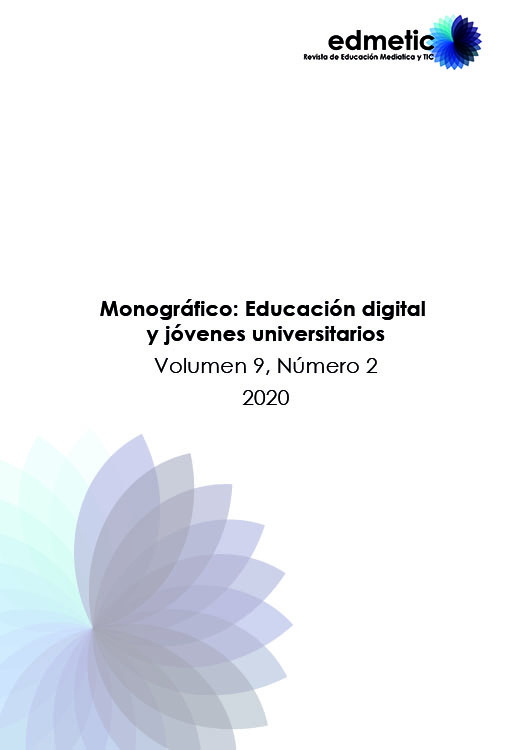Español
Main Article Content
Abstract
This paper analyzes memes’ proliferation in the digital culture of college students from the Ecuadorian National University of Education (UNAE from its Spanish initials, a public university). Using the theoretical framework of the New Literacy Studies and the New Literacies, I performed an ethnographic approach to memes as discursive practices that involve written language and other media to produce meaning. I identified the most successful Facebook page related to memes from the UNAE and gathered all the memes published on October of 2019 (64 in total). I inductively categorized those memes and found three general aspects for its description and interpretation: the issues addressed, the knowledge in play and the implicit functions beyond humor. I made a detailed description and interpretation of the 10 most successful memes (success in terms of the interaction they produced in the community) and provided an overview of the issues addressed (experiences in college, promoting a model of student, and the national strike) and their implicit functions (informative, emotional relief, community bonding, political debate, and recruiting protesters). In conclusion I argue that memes fulfill relevant social functions and could be considered as a support for the participation of college students in other literacy practices, and —therefore— social issues.
Downloads
Article Details
TRANSFER RIGHTS AND COMMITMENTS TO EDMETIC, REVISTA DE EDUCACIÓN MEDIÁTICA Y TIC
E-ISSN: 2254-0059
The undersigned author(s) of article entitled:
- Transfer to EDMETIC, Revista de Educación Mediática y TIC publishing rights of the article mention before. The magazine will have the right to publish in any format or media this article.
- The author(s) claim that this article is original and which has not been published before in any format and wasn´t submitted for evaluation to another publication.
- The author(s) claim that this article has the copyright´s permissions for publication
- The author(s) accept the changes to the contents on the review, and changes in the style of the manuscript by the Editorial Board of EDMETIC, Revista Educación Mediática y TIC.
- The author(s) declare that they have complied with the ethical principles of research.
- The author(s) not be subject to personal or business association that involves a conflict of interest with article presented
- El author(s) undertakes to give the primary sources of information, if requested.
Date:
Author(s) names and signatures (1):
(1) Fill the form and send to: revistaedmetic@uco.es
